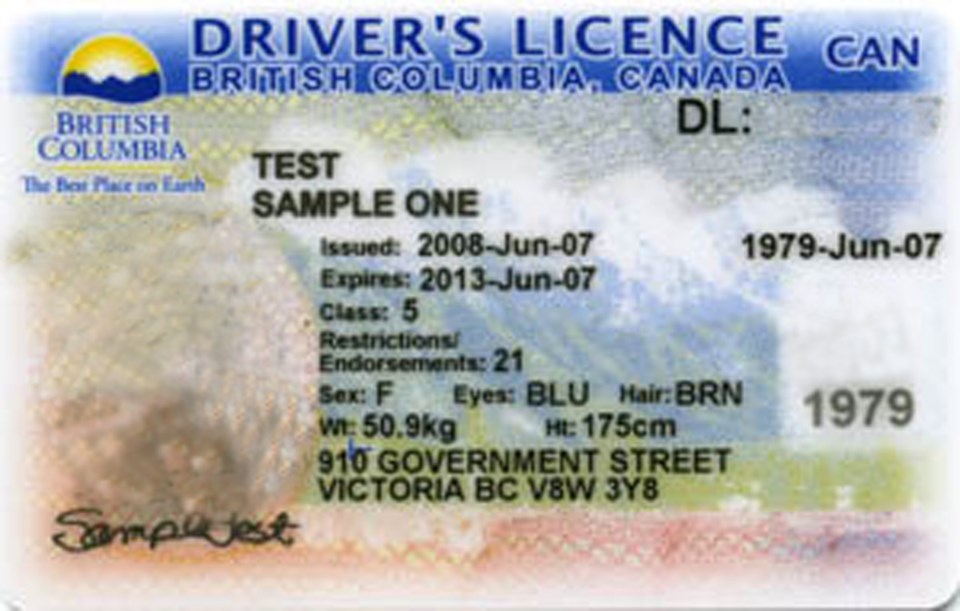As more concerns surfaced over the ability of foreign drivers in Richmond, the RCMP say they have ways and means to ascertain whether a motorist is a visitor or a resident.
In the wake of the revelation that Richmond Mounties were treating Chinese licences as invalid — a decision that’s now softened after the provincial RCMP came to an agreement with ICBC — the focus has shifted to how police determine if someone is being honest about their status in B.C.
Certain foreign driving licences, such as the thousands of Chinese ones being used in Richmond, are good for 90 days if you’re a permanent resident and six months if you’re a visitor.
There are concerns that people are driving around Richmond well past those time constraints — while still being insured by ICBC — but claiming to police, when pulled over, that they’ve only been in the country a short time.
However, Cpl. Rob McDonald, spokesman for RCMP Traffic Services in B.C., said you can get to the truth by simply talking to the person that’s been pulled over.
“One trick of the trade is to ask them if they have a BC Care Card. If they have that, then there’s every chance they’re not just here visiting,” said McDonald.
What if they have a BC Care Card, but deny it?
“There’s a series of questions that we can ask and most people won’t be able to come up with a story that fits,” added McDonald.
“People won’t be thinking that fast to come up with an answer that makes sense for everything we ask.
“The chances of people going to such great lengths with their stories, just to avoid getting a B.C. driver’s licence, is very slim.
“It would be easier just to get the licence.”
One of the main issues Richmond RCMP had with the likes of a Chinese licences was the inability to verify the information on the licence — a stance that was backed up by a judge in court.
Even an ICBC-approved translation document attached to the Chinese licence wasn’t good enough for Richmond RCMP because there was no way to check if the details on the licence were correct.
After a meeting between ICBC and RCMP’s E Division (B.C.), however, that translation document is now considered adequate verification.
“A driver’s licence is a driver’s licence and that has now been agreed on between the RCMP and ICBC, in terms of the Motor Vehicle Act,” said McDonald.
Ideally, foreign drivers coming into B.C. are advised to get an international driver’s permit (IDP) from the country they’re from.
But only certain countries are part of a core group signed up for that program. China is not one of them.
On the weekend, driving schools in Richmond raised concerns about the quality of foreign drivers on our roads.
Allowing such drivers on the road for up to six months was a “hazard,” according to a story in The Province, which quoted a Richmond instructor who’d encountered at least a half-dozen students with licences he suspected were bought from countries like Taiwan, China, the Philippines and South Korea over the past few years.
In 1993, a police sting revealed up to 10,000 foreign drivers, mostly from Southeast Asia, had obtained B.C. licences fraudulently in a bribery scheme involving as many as six Motor Vehicle Branch examiners and a dozen driving schools.
In 2004, another Richmond driving school was busted by ICBC for running a licensing fraud ring.
With a file from The Province



